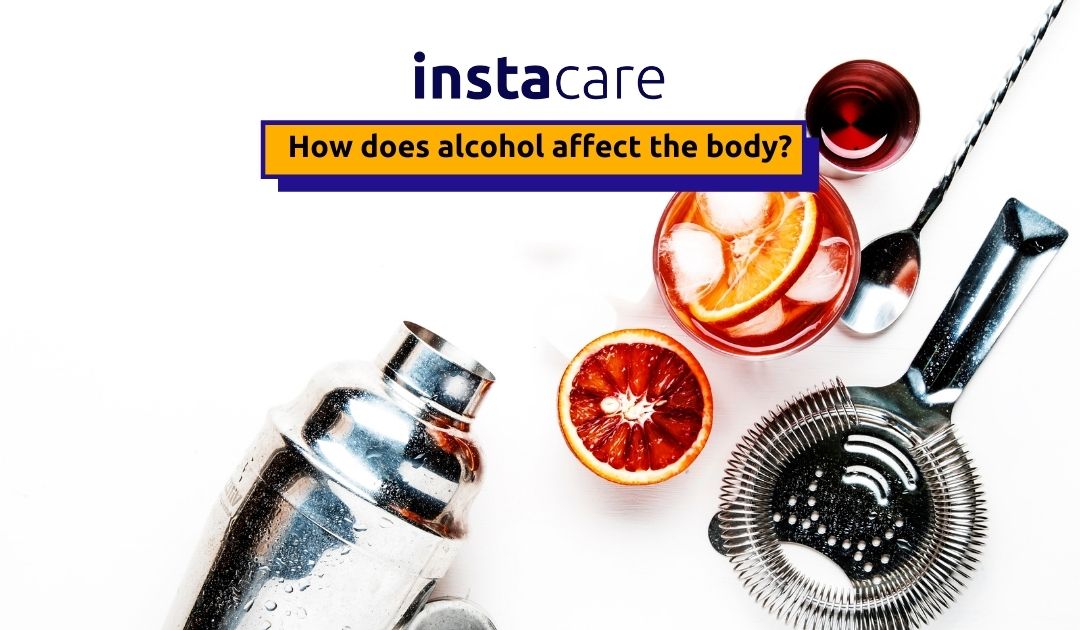Some people drink alcohol seldom, while some may do that more often. The tolerance level of alcohol differs from person to person. For one that particular amount may not be harmful. While for another one, it may be. However, the tolerance level may increase with increased intake. In this article, we are going to tell how alcohol consumption affects your body? Why is it harmful? And why do experts advise you to limit its intake?
Effects of Alcohol on Your Body
Pancreatitis
When you consume alcohol, your pancreas starts producing digestive enzymes that eventually damage the pancreas. Therefore, long-term alcohol consumption can cause pancreatitis, which is inflammation of the pancreas. Another complication of pancreatitis is diabetes because the pancreas secretes insulin.
If you are suffering from a pancreas issue Book an appointment with the best gastroenterologist in Islamabad through InstaCare.
Liver Damage
One of the most common side effects of chronic alcohol consumption is liver damage. Since the liver is the organ that detoxifies everything we consume, it has to work much harder to get rid of the toxins the alcohol produces. Its long-term consumption causes cirrhosis of the liver, which means scarring. Liver cirrhosis is a serious health condition that needs urgent medical attention. Therefore, if anyone near you is diagnosed with it, they must visit a general physician in Lahore.
Women who drink are at more risk of developing liver cirrhosis as compared to men. It may happen because alcohol absorption in women is higher than instead of men.
If you keep consuming alcohol, the more your liver cirrhosis progresses. Therefore, to stop the damage, you must stop drinking alcohol. Also, there is no treatment until yet that can reverse the damage that occurred to the liver as cirrhosis.
Brain
Slurred speech, loss of coordination, imbalance in walking, all these symptoms occur upon alcohol ingestion as it affects your central nervous system. Alcohol affects your brain, making it difficult for you to make the right decisions, walk properly, or even make certain little movements. You may also feel tingling and numbness in your hands and feet. It is the reason why you should not drive a car or operate any machinery when you are drunk.
View More: Can You Eat Cold Chicken All You Need To Know
Alcohol also impacts your ability to make long-term memories. You may be unable to recall what happened in the past due to chronic alcohol consumption. Moreover, when consumed for the long term, it may cause damage to the frontal lobe of the brain, a part that controls emotions, helps in making rational decisions and making the right judgments.
Digestive System
The relationship between alcohol consumption and damage to the digestive system is unclear. But it shows bad effects on the digestive system. Alcohol impairs the absorption of nutrients, leaving you with a handful of nutritional deficiencies to deal with. Also, people who drink alcohol are prone to have hemorrhoids due to their dehydrating nature.
Chronic alcohol consumption increases the risk of many malignancies of the gastrointestinal tract like that of the colon, liver, esophagus, oral cavity, and throat. And this risk increases if the person smokes cigarettes as well.
Circulatory system
Long-term consumption of alcohol leads to various heart diseases, lung problems, and that of blood vessels. It leaves you at risk of getting a heart attack, stroke, hypertension, heart failure, and altered heartbeat. Women who drink are at more risk of developing these health conditions as compared to men.
Conclusion
Alcohol consumption can make your life miserable and your health deteriorated. Along with all the above-mentioned health conditions, it may also damage your immune system, cause diabetes, hallucinations, behavioral changes, blackouts, fatigue, diarrhea, infertility, and much more. If anyone near you has an addiction to alcohol, you must take them to a therapist who can help them out to get rid of it. If you want the information for the best General Psychiatrist in Pakistan call on the helpline number of InstaCare: 0310 0002273

